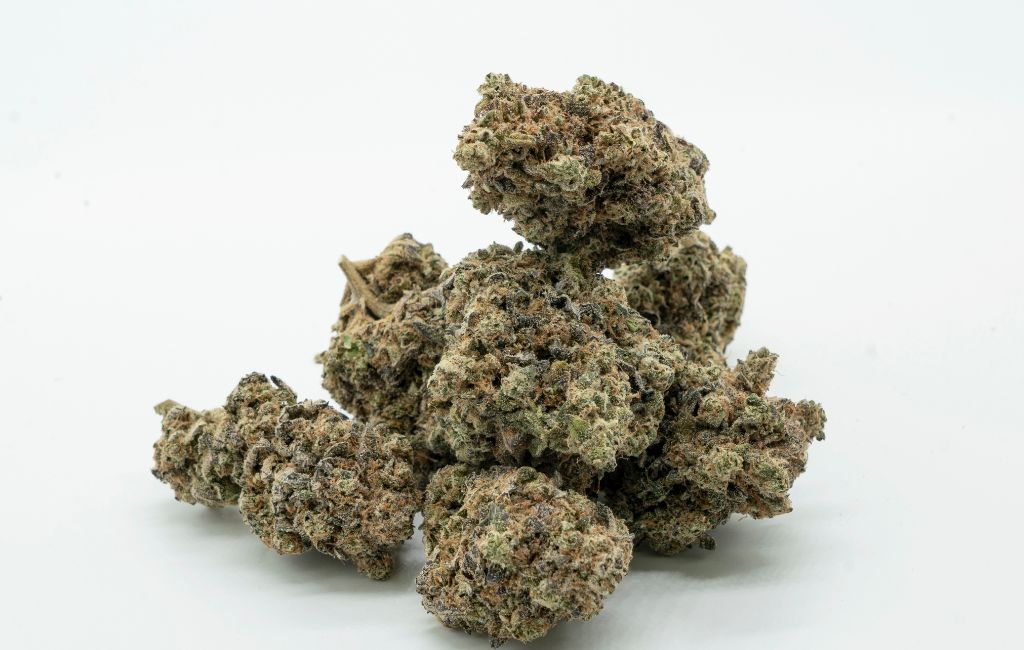THCa Flowers and Their Therapeutic Power
In recent years, the interest in cannabis and its derivatives has surged, with a particular focus on the therapeutic potential of various cannabinoids. Among these, THCa (tetrahydrocannabinolic acid) has emerged as a compound of significant interest. Unlike its more famous counterpart THC (tetrahydrocannabinol), THCa is non-psychoactive, offering a range of potential health benefits without the high. This article explores the therapeutic power of THCa flowers, examining their properties, benefits, and potential applications.
Understanding THCa: The Basics
THCa is a naturally occurring cannabinoid found in raw and live cannabis plants. It is the acidic precursor to THC, meaning that it converts to THC when exposed to heat through a process called decarboxylation. This transformation is what typically occurs when cannabis is smoked or vaporized. However, when consumed in its raw form, THCa does not produce the psychoactive effects associated with THC.
Properties of THCa
- Non-psychoactive: THCa does not induce the high commonly associated with cannabis use.
- Anti-inflammatory: Research suggests that THCa may have anti-inflammatory properties, making it potentially useful for conditions like arthritis.
- Neuroprotective: Some studies indicate that THCa may offer neuroprotective benefits, which could be beneficial for neurodegenerative diseases.
- Antiemetic: THCa has shown promise in reducing nausea and vomiting, particularly in chemotherapy patients.
Therapeutic Benefits of THCa Flowers
THCa flowers, when consumed in their raw form, offer a range of potential health benefits. These benefits are being explored in various studies and anecdotal reports, highlighting the compound’s potential as a therapeutic agent.
Anti-Inflammatory Effects
Inflammation is a common underlying factor in many chronic diseases, including arthritis, inflammatory bowel disease, and multiple sclerosis. THCa’s anti-inflammatory properties have been the subject of research, with studies suggesting that it may help reduce inflammation and alleviate associated symptoms. For instance, a study published in the “Journal of Pharmacology and Experimental Therapeutics” found that THCa exhibited significant anti-inflammatory effects in animal models.
Neuroprotective Potential
Neurodegenerative diseases such as Alzheimer’s and Parkinson’s are characterized by the progressive loss of nerve cells. THCa’s neuroprotective properties have sparked interest in its potential to slow down or prevent the progression of these diseases. Research conducted by the “British Journal of Pharmacology” indicated that THCa might help protect brain cells from damage, offering hope for new therapeutic approaches.
Antiemetic Properties
Nausea and vomiting are common side effects of chemotherapy and other medical treatments. THCa has shown promise as an antiemetic agent, potentially providing relief for patients undergoing such treatments. A study in the “European Journal of Pharmacology” demonstrated that THCa reduced nausea and vomiting in animal models, suggesting its potential application in clinical settings.
Case Studies and Real-World Applications
While scientific research provides valuable insights into the potential benefits of THCa, real-world applications and case studies offer practical examples of its therapeutic power.
Case Study: THCa for Arthritis Relief
One notable case involves a patient with rheumatoid arthritis who incorporated raw cannabis juice, rich in THCa, into their daily routine. Over time, the patient reported a significant reduction in joint pain and inflammation, allowing for improved mobility and quality of life. This case highlights the potential of THCa as a natural alternative for managing arthritis symptoms.
Case Study: THCa in Neurodegenerative Disease Management
Another case study focused on a patient with early-stage Parkinson’s disease who began using THCa-rich cannabis extracts. The patient experienced a noticeable improvement in motor function and a reduction in tremors, suggesting that THCa may offer benefits for individuals with neurodegenerative conditions.
Statistics and Market Trends
The growing interest in THCa and its therapeutic potential is reflected in market trends and consumer behavior. According to a report by “Grand View Research,” the global cannabis market is expected to reach USD 146.4 billion by 2025, with a significant portion attributed to the demand for non-psychoactive cannabinoids like THCa.
- Increased consumer interest in non-psychoactive cannabis products.
- Growing number of studies exploring the therapeutic benefits of THCa.
- Expansion of cannabis-based products in the health and wellness sector.
Conclusion
THCa flowers represent a promising area of exploration within the cannabis industry, offering a range of potential therapeutic benefits without the psychoactive effects of THC. From anti-inflammatory and neuroprotective properties to antiemetic effects, THCa holds promise for individuals seeking natural alternatives for managing various health conditions. As research continues to unfold, the potential applications of THCa are likely to expand, paving the way for new and innovative treatments in the field of cannabinoid therapy.
